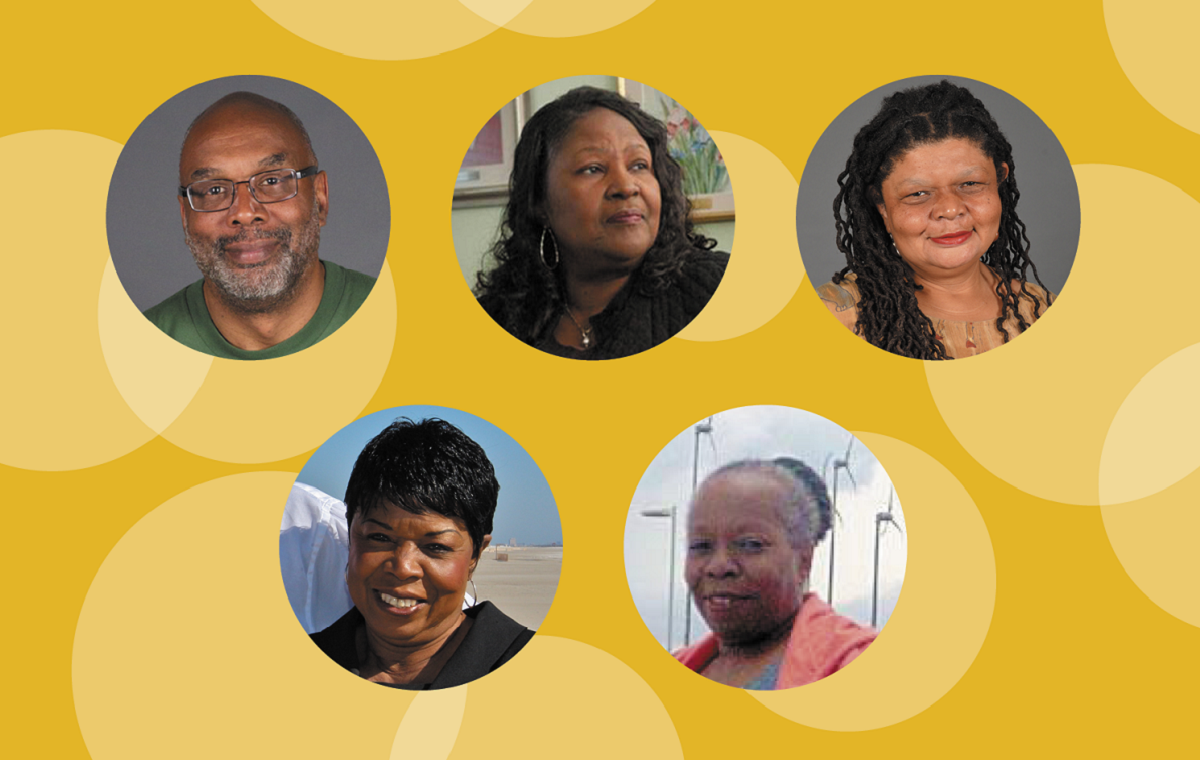The Sierra Club began as a white-dominated conservation organization, focused on preserving pristine natural places like Yosemite National Park. It is thanks in large part to the efforts of our Black staff and volunteers that we are becoming an environmental organization for the 21st century, rooted in principles of equity and racial justice, and focused on ensuring that all people enjoy a stable climate and a healthy environment, especially the people of color most exposed to environmental harm.
We are proud to have served as the organizing home of Black environmental leaders like Leslie Fields, Rose Johnson, and Rhonda Anderson, who have fought to clean up toxic chemicals, shut down major polluters, and strengthen environmental protections. We invite you to learn more about their work below.
Aaron Mair is an environmental justice movement leader who began his decades of advocacy by working to shut down the waste-to-energy incinerator that blew toxic ash onto his neighborhood in Albany, New York in 1987. But when he turned to his local Sierra Club chapter for support, his request was rebuffed, with members asking if he had tried the NAACP. Once his campaign against the incinerator ended, he joined the Sierra Club with the intention of directing more of its energies toward fighting pollution in communities of color. He has held numerous leadership positions within the organization, and he became the Sierra Club’s first Black president of the national board of directors in 2015.
Rhonda Anderson has been an environmental justice organizer with the Sierra Club in Detroit for more than 12 years, defending communities and fighting against industrial polluters in already overburdened areas. Her work has been recognized nationally, and she has received multiple Sierra Club awards, including the Virginia Ferguson Award in 2013 and the Mike McClosky Award in 2015.
Leslie Fields has been working for environmental protection and environmental justice at the local, state, federal, and international levels for over two decades. Formerly the director of the Sierra Club’s environmental justice program, she now serves as the director of policy, advocacy, and legal. She was appointed by President Obama to serve on the Board of Directors of the Mickey Leland Urban Air Toxics Research Center. She serves on the boards of the Children's Environmental Health Network and the East African humanitarian and development organization Adeso African Solutions. She taught international environmental law as an adjunct law professor at Howard University School of Law.
Rita Harris started her career with the Sierra Club as a national environmental justice organizer in the Tennessee Chapter. During her 21 years with the organization, she helped block a proposed nuclear waste incinerator from being built near the predominantly Black Riverview Community along the Mississippi River, close the Velsicol Chemical plant and hazardous-waste incinerator in Memphis, and fought for clean water in Williston, South Carolina. After retiring, she was elected to the national Sierra Club Board of Directors.
She was appointed to the EPA’s National Environmental Justice Advisory Council for two terms ending in August 2022.
A native of North Gulfport, Johnson was the chair of the Sierra Club’s Mississippi Chapter—the first Black person to hold that position—when Hurricane Katrina struck in August 2005. Nine years and many environmental battles later, she became the first recipient of the Sierra Club’s Robert Bullard Environmental Justice Award. After Katrina, she saw firsthand the importance of having a secure home, and founded the North Gulfport Community Land Trust, which enabled low- and moderate-income Black residents to become homeowners. Johnson passed away in April 2020.
